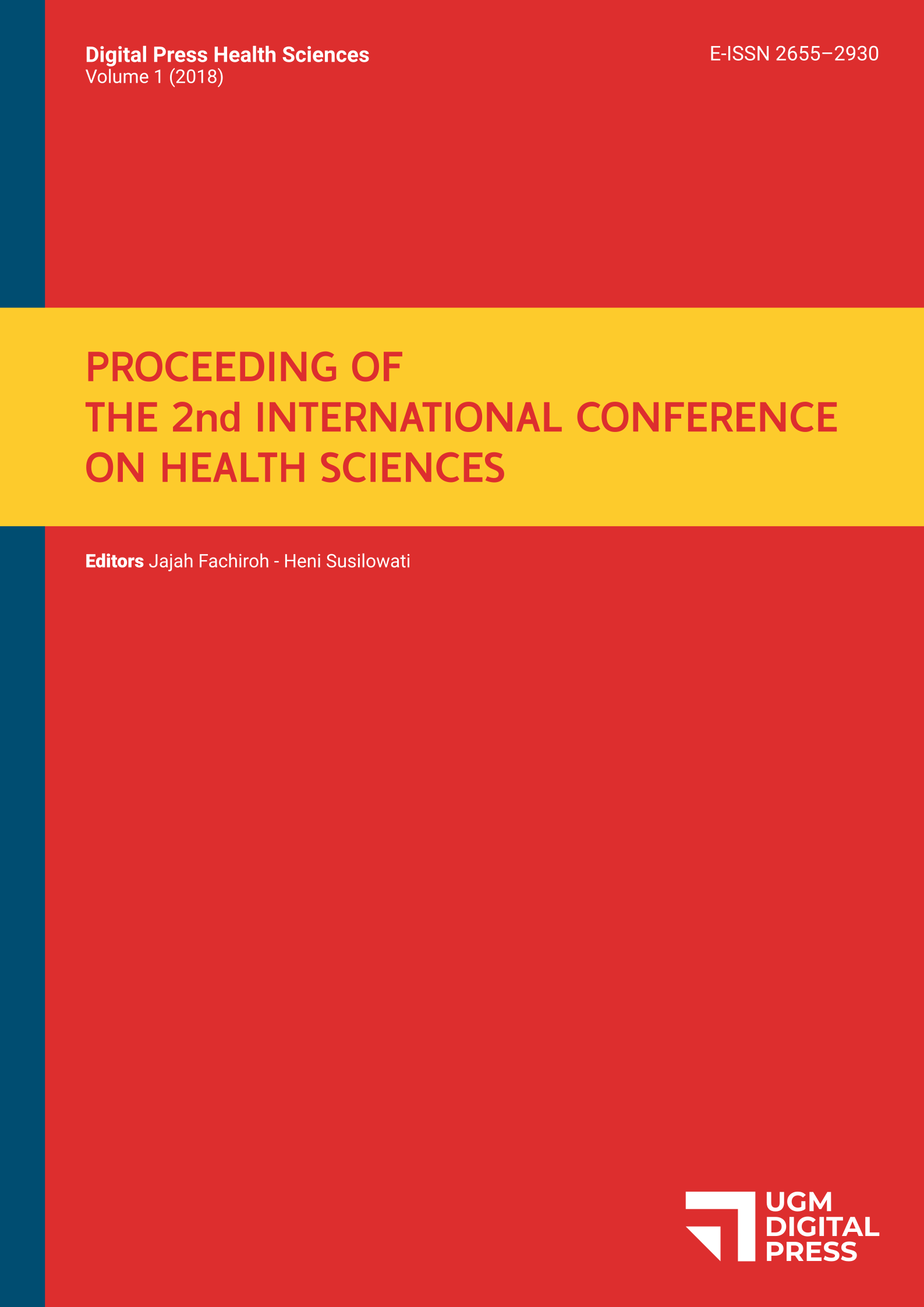Degradation profile of synthetic coral scaffold in cell culture media
Erlina Sih Mahanani
1
, Dwi Rizki Lestari
2
1
School of Dentistry, Faculty of Medicine and Health Science, Universitas Muhammadiyah Yogyakarta, Tamantirto, Yogyakarta, Indonesia
2
RSGM Universitas Muhammadiyah Yogyakarta, Jl. HOS Cokroaminoto 17, Wirobrajan, Yogyakarta, Indonesia
erlina.sih@umy.ac.id
Abstract
The scaffold is one of the factors in tissue
engineering that determine the success of bone regeneration. The important
characteristic of the scaffold is able to
degrade gradually. In vitro study using
cells, the scaffold will be exposed to
culture media. Therefore, degradation profile for scaffold needs to be examined. This study aims to
investigate the degradation profile of synthetic coral scaffold in cell culture
media using pH measurement. The method used the synthetic
coral scaffolds were prepared from denaturalized collagen (gelatin) and calcium
carbonate (calcite) with a concentration
of 5:5 and 4:6 weight % in aqua dest. The
scaffolds were fabricated in
membrane thick film which was then physically crosslinked. The 10 % of gelatin scaffold was used as a control. The scaffolds were incubated in cell culture
media (non-phenol red Dulbecco’s Modified Eagle Medium) for 1 until 8 days, and
pH changes of the medium were measured. As the result, Profile of
degradation on day 1 to day 4 showed the 5:5 scaffold had the smallest degradation. The results indicated
the significant different between scaffold concentration in day 1 (p=0.005),
5th(p=0.03), and 6th day (p=0.011). At
the end of incubated days, the pH changed but not significantly different. LSD showed the significant differences between scaffold (5:5 and 4:6) with
control and no significant difference
between 2 concentrations of the scaffold.
The conclusion of this study is the synthetic coral scaffold degraded gradually
until the end incubation time and between concentration had different
degradation profile in the early incubation time using pH measurement.
Keywords
bone regeneration, degradation, non-phenol red DMEM, synthetic coral scaffold
References
2 RSGM Universitas Muhammadiyah Yogyakarta, Jl. HOS Cokroaminoto 17, Wirobrajan, Yogyakarta, Indonesia
erlina.sih@umy.ac.id
Abstract
The scaffold is one of the factors in tissue
engineering that determine the success of bone regeneration. The important
characteristic of the scaffold is able to
degrade gradually. In vitro study using
cells, the scaffold will be exposed to
culture media. Therefore, degradation profile for scaffold needs to be examined. This study aims to
investigate the degradation profile of synthetic coral scaffold in cell culture
media using pH measurement. The method used the synthetic
coral scaffolds were prepared from denaturalized collagen (gelatin) and calcium
carbonate (calcite) with a concentration
of 5:5 and 4:6 weight % in aqua dest. The
scaffolds were fabricated in
membrane thick film which was then physically crosslinked. The 10 % of gelatin scaffold was used as a control. The scaffolds were incubated in cell culture
media (non-phenol red Dulbecco’s Modified Eagle Medium) for 1 until 8 days, and
pH changes of the medium were measured. As the result, Profile of
degradation on day 1 to day 4 showed the 5:5 scaffold had the smallest degradation. The results indicated
the significant different between scaffold concentration in day 1 (p=0.005),
5th(p=0.03), and 6th day (p=0.011). At
the end of incubated days, the pH changed but not significantly different. LSD showed the significant differences between scaffold (5:5 and 4:6) with
control and no significant difference
between 2 concentrations of the scaffold.
The conclusion of this study is the synthetic coral scaffold degraded gradually
until the end incubation time and between concentration had different
degradation profile in the early incubation time using pH measurement.

